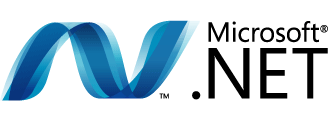
Summary: This course is designed to get attendees up and running in
the Microsoft .NET environment using the Visual C# programming language in the
Visual Studio.NET development environment. Attention is paid to the underlying
.NET platform to provide a solid grounding to work on when programming within
it.
Prerequisites: Delegates must possess the ability to program in some
programming language. It does not matter whether this is a Windows-based programming
language or not
Duration: 4 days
Location: This course is run on-site at the customer's premises
Overview Agenda
Detailed Agenda
Overview Agenda
.NET platform overview
- What is .NET
- .NET benefits
- ECMA & the CLI
- Cross-platform support
- Microsoft's CLR
- Namespaces
- Assemblies
- FCL Overview
- .NET Tools
- Deployment options
- Interoperability
C# programming
- Introduction to C#
- Predefined Types
- Variables & Constants
- Application Structure
- Namespaces
- Linking to Assemblies
- Boxed Values
- Arrays
- Methods & Parameters
- Objects
- Object Finalization
- Statements
- Expressions
- Attributes & metadata
- Pre-processor directives
- Class specifics
- Interfaces
Visual Studio .NET introduction
- Terminology
- Project management
- Project directory structure
- Useful keystrokes
Applying C# in .NET
- Interoperability
- Reflection
- Web services
Detailed Agenda
.NET platform overview
- What is .NET
- .NET benefits
- Security
- Interoperability
- Common class library
- ECMA & the CLI
- CTS
- CLS
- CIL
- Metadata
- JIT
- VES
- Garbage collection
- Managed/unmanaged code/data
- Safe/unsafe/verifiable code
- Platform portability
- Cross-platform support
- Microsoft .NET
- Microsoft Shared Source CLI
- Ximian Mono
- DotGNU Portable.NET
- Microsoft's CLR
- Namespaces
- Assemblies
- Metadata & custom metadata
- Side-by-side execution
- Versioning & strong/weak naming
- Assembly caches
- FCL Overview
- .NET Tools
- Framework tools
- Framework SDK tools
- Deployment options
- Interoperability
C# programming
- Introduction to C#
- Predefined Types
- Value types
- Reference types
- Enumerated types
- Strings & string literals
- Variables & Constants
- Initialisation rules
- Static & readonly fields
- Application Structure
- Namespaces
- Linking to Assemblies
- Boxed Values
- Arrays
- Methods & Parameters
- Overloading
- Static methods
- Reference & output parameters
- Objects
- Common behaviour
- Creating objects
- Garbage collection
- Object Finalization
- Finalizer methods & destructors
- Non-deterministic finalization
- Deterministic finalization
- Statements
- Selection
- Iteration
- Jump
- Exception handling
- Expressions
- Assignment operators
- The conditional operator
- Casts
- Attributes & metadata
- Pre-processor directives
- Class specifics
- Inheritance
- Member accessibility
- Polymorphism
- Properties
- Events & delegates
- Operator overloading
- Interfaces
- Defining interfaces
- Implementing interfaces
- Extracting interfaces
Visual Studio .NET introduction
- Terminology
- Project management
- Project directory structure
- Useful keystrokes
Applying C# in .NET
- Interoperability
- COM Interop
- Platform Invocation Service
- Reflection
- Custom attributes
- Examining metadata at runtime
- Web services
Back to top
